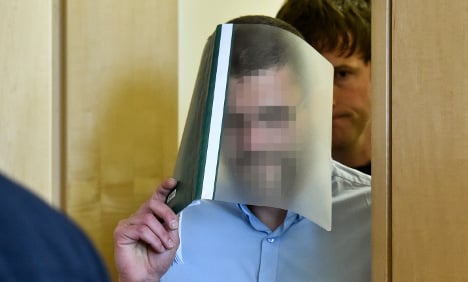The 46-year-old has been charged with attempted murder, blackmail, grievous bodily harm and attempted manslaughter between August 2011 and October 2012.
If found guilty he could be sentenced to life in prison by the court in Frankfurt (Oder). But Mario K., who is unemployed, claims he is innocent.
The case is one of the most dramatic in recent criminal history in the eastern state of Brandenburg.
According to prosecutors he threatened a woman with a gun in Bad Saarow in October 2011. When a bodyguard came to her aid, he shot him. The guard’s life was saved with an operation, but he was left disabled. The armed man also fired two shots at the woman as she fled.

In October 2012, the masked man also kidnapped a Berlin investment manager in front of his wife and son from the millionaire's second home in Storkow, Brandenburg. He demanded €1 million from the family.
Police said the kidnapper threw the man into a nearby lake, where he was made to hold onto a boat while he was pulled through the water. He escaped two days after being kidnapped.
It took two years from the date of the masked man’s first attack in 2011 for police to catch up with the alleged perpetrator. He was arrested in September 2013.
The trial is expected to last until October.
SEE ALSO: Exchange student 'murderer' stays silent




 Please whitelist us to continue reading.
Please whitelist us to continue reading.
Member comments